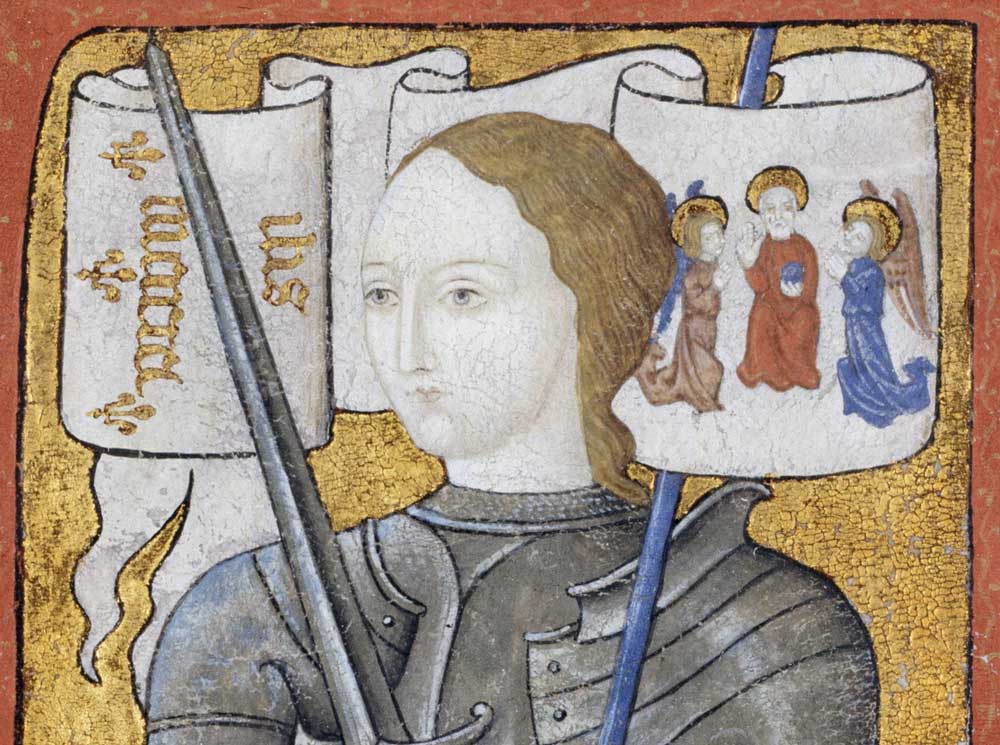Joan of Arc’s Trial Begins - 2 minutes read

She came from Domrémy in north-eastern France, where she was Jeannette. She signed her name Jehanne. But she called herself Jeanne la Pucelle, Joan the Maid.
Saint Michael’s was the first voice she heard – around noon, one summer’s day when she was 13 or so. It came from her right surrounded by a great light. But it was Saint Catherine and Saint Margaret, virgin martyrs both, who came to her most. She heard them often at compline, at the close of day, or other times when the bells were rung. The voice was lovely and low, Joan said, and it spoke in French.
The voice said things Joan didn’t understand. But this she did: she must free France from English tyranny and place Charles VII on the throne. Merlin predicted a virgin warrior would come who ‘hides the flower of her virginity’, Geoffrey of Monmouth had written. And here was Joan, blessed with visions, inviolate, acting on instructions from God.
To Charles she was heaven-sent. But the English and their allies knew God was on their side; her voices must come from the other place. Forced to surrender to the Burgundians at Compiègne in May 1430, she might have been ransomed. But a trial would tarnish her name and, by extension, Charles’ too.
Her heresy trial began in Rouen on 9 January 1431; she was first questioned on 21 February. The interrogations went on, day after day. Or rather, the same interrogation was repeated again and again. Sometimes she faced 60 or more men, all of great learning: churchmen, scholars, doctors of law.
You can hear her discomfort in the transcript as they push and push her to talk about her visions, to reveal the corporeality of her saints – which would prove them demons. ‘You overburden me’, she told her inquisitors. But they didn’t stop. Submit to our wisdom, our knowledge, our authority, they exhorted her. We act ‘in love and kindness’, they said.
She recanted her visions on 24 May. But then she relapsed; she had sold her soul to save her life, the voices said. She was burned alive six days later.
Be bold, her voices always told her. And she was.
Source: History Today Feed